Nightingale song of Stepan Bandera
In Ukraine, an entire generation of young people has already grown up, which sincerely believes that Stepan Bandera and Roman Shukhevych fought, not sparing their stomach, for the independence of their country.
At the same time, they don’t want to remember how many innocent lives were ruined by these “patriots” of Ukraine. I have to remind ...
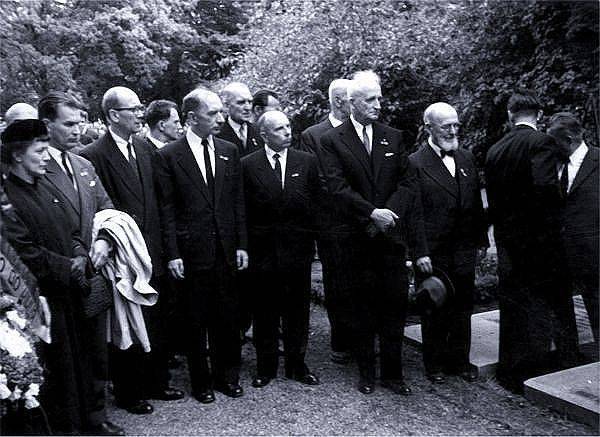
In Slavic mythology, the Nightingale the robber is often depicted as a humanoid beast that lived in the lands of Kiev and robbed all merchants passing by, striking those who are dissatisfied with the monstrous whistler: “Get out!”.
According to the legend, Ilya Muromets came once and to those forests of Brynskiy, and to those muds of tampers, and to those bridges of Kalinovs, and to that river Smorodinka.
Nightingale the robber heard about his demise and great distress about himself, and not allowing Ilya of Murom in twenty versts, he whistled with his whistling robber, but the heroic heart did not fear.
Ilya Muromets came under the very nest, which is twisted on nine oaks, and the Nightingale robber, sitting on the nest, saw the Russian-Russian warrior and whistled:
“Hey-ee-ee-th!”, And wanted to kill Ilya of Murom to death.
And here is an old Cossack and Ilya of Murom
Yes, he takes his bursting tight bow,
In his takes in white, he in hands,
He ate a silk thread,
And he hardened the arrow,
Then he shot at that Nightingale the robber,
He knocked out the right eye with a braid.
He let the nightingale down on the ground,
I hooked it to the right to the stirrup stirrup,
He drove him in a glorious field,
Past nest and yes nightingale.
............................................................... ..
But he also carried the Nightingale and in the open field,
And he cut down his head and thieves.
Ilya said yes these are the words:
"You have enough to whistle yes for the nightingale,
You are full of shouting yes on the beast,
You are so good to tear down, yes, the father of mothers,
You are full of widow and young wives,
You just have to go down the orphan and the small children. ”
29 June 1941, the Nabtigall abwehr special battalion (Nachtigall - SOLOVEY), named after Stepan Bandera, along with the 1 battalion of the Brandenburg-800 regiment, entered Lviv, left by the Red Army 26 June.
The commander of the Special Battalion from the Germans was Lieutenant Hans-Albrecht Herzner, and from the Ukrainians, Lieutenant Roman Shukhevych. Theodor Oberlender was appointed political leader of the Nightingales.
He acted as one of the instigators of the ethnic concept of the “new order”, the mass forcible resettlement of the indigenous population of the occupied territories, Reichsleiter of the Union of Germanic East.
The Solbay Special Battalion is the favorite brainchild of the leader of the Organization of Ukrainian Nationalists (OUN) Stepan Bandera. He himself wrote: “At the beginning of 1941, there was an opportunity to make a school for two Ukrainian units under the German army, with an approximate number of people in smoking” (Bandera S. Prospects for the Ukrainian Revolution, 1958).
Here, Bandera noted that “military training exercises” were performed at OUN-Bandera Roman Shukhevych, Dmitry Gritsai-Perebiynis and Oleksa Gasin-Lytsar. The formation took military training in Neugammer (Germany) as part of the 1 battalion of the special-purpose regiment Brandenburg-800, which was subordinated to Abwer II (sabotage and sabotage).
As a well-known scientist and public figure Albert Norden testified at a press conference in Berlin 22 on October 1959 of the year (that is, a week after Bandera’s murder), from 1 to 6 in July 1941 of the year “nightingales” under the command of Oberlender, Herzner and Shukhevych together with field police and Bokhvkars of the regional OUN (b) executives destroyed in Lviv from 3 to 4 thousands of people, mostly Soviet activists, Jews and Poles, among whom more than 70 are famous scientists and cultural figures.
In 1991, a book by Polish author Alexander Korman, “From the bloody days of Lviv 1941,” was published in London. The author cites numerous facts, names and eyewitness accounts of this tragedy, including a photocopy of Stepan Bandera’s appeal, which was distributed in Lviv from June 30 to July 11 1941 in the form of bills and posters: “People! Know! Moscow, Poland, Magyars, Jews - then your enemies! Destroy them! ” In another interpretation, this card sounded like this: "Lyakhov, Jews, destroy the communists without mercy, do not feel sorry for the enemies of the Ukrainian popular revolution!"
The book of Alexander Korman provides a lot of evidence. Here are some of them: “The“ Nakhtigalevs ”pulled out of the houses of the communists and the Poles, who were also hung up on the balconies” ... “The soldiers of the Ukrainians from the Nachtigall battalion were called“ poultry houses ”(“ nightingales ”- AV) from the Nachtigall battalion. They were in German uniforms and with German insignia.
We talked in Ukrainian "..." ... 500 Jews. The Ukrainians have sounded them all ”, etc. “Mikola Lebed was undoubtedly in charge of this action — the chief of the security service of the OUN (b), and a little later — the conductor of the entire OUN (b) in the province. His assistants were: his deputy at the security service of the OUN, Yevgeny Vretsena, and the head of the regional executive secretary of the OUN (b) Ivan „Legend“ Klymiv, who prepared the lists and personally supervised the executions, the Gestapo Yaroslav Moroz and the commanders of the “Nachtigall” Hans-Altrett Htr .
Though above it all I felt the heavy hand of the Gestapo (SS-Hauptsturmführer Hans Krieger) and the Abwehr (Theodor Oberlander) "- wrote Professor Vitaly Maslowski found 27 October 1999 years in her apartment building in Lviv c brain injury and fracture of the cervical spine area .
Soon, however, there was a conflict between Bandera and the Germans, the echo of which would be the death of Bandera 15 on October 1959 of the year in Munich. After the “SOLOVEY” took under protection the key points of the city - the power station, the station, the radio station, water towers and other objects, in Lviv, the advanced OUN marching group (b) led by Yaroslav Stetsko (Karbovich, First Deputy of Bandera), which 30 June proclaims the creation of "the Ukrainian State, the Allied Great Germany, led by the leader Stepan Bandera."
With the assistance of the special-battalion SOLOVEY, who was guarding Lviv radio, the text of the Act of Proclamation of the Ukrainian State was read twice on the air, reporting the creation of a new Ukrainian state on the mother lands of Ukraine. Over the next few days, representatives of the OUN (b) formed an executive body - the Ukrainian State Administration (UGP), organized the National Assembly, enlisted the support of the Greek Catholic clergy, including Metropolitan Andrew Galichsky (Sheptitsky).
Stepan Bandera himself was in Krakow during this period. Despite the fact that, according to Lev Shankovsky, the OUN (b) was “ready to cooperate with Nazi Germany for a joint fight against Moscow,” the German leadership reacted extremely negatively to this initiative: the SD and Sonder command teams of the Gestapo were immediately sent to Lviv to eliminate "Conspiracy" of Ukrainian nationalists.
After the events mentioned, Bandera was detained for a year and a half in a German police prison in Krakow and then transferred to the Sachsenhausen concentration camp. Legend (I. Klymiv) was arrested by Gestapo officers 4 in December 1942 of the year and executed on the same day in prison. While imprisoned, Bandera maintained contact with Roman Shukhevych through his wife, Yaroslav, who came to see him on a date.
From Sachsenhausen Bandera was released 25 September 1944, and from the second floor. 1940-s worked with the British intelligence services, and by the beginning of the 1950-s settled in Munich. Theodor Oberländer left the American captivity in 1946 and in 1953 he went to the Bundestag on the Bavarian list, and on October 20 on 1953, German Federal Chancellor Konrad Adenauer appointed the former head of the SOLOVEY Special Forces Specialist Federal Minister for Displaced Persons, Refugees and Victims (!) of war.
In 1959, publications appeared simultaneously in Moscow and East Berlin, in which evidence was given that a certain German officer was responsible for organizing massacres of the Polish intelligentsia, communists and Jews in 1941 in Lviv. This officer turned out to be none other than Theodore Oberlander.
September 30 1959 (that is, two weeks before the Bandera assassination, which is extremely important because, as we will see below, liberal falsifiers attribute the start of the charges against Oberlander to the time after the assassination. - A.V.) Oberlander at a press conference in Bonn tried to disown the Lviv massacre and dump the killings on the retreating Soviet troops. However, he failed to prove this, since the last Soviet units had left Lviv on June 26, while the massacres began on June 30 of the year.
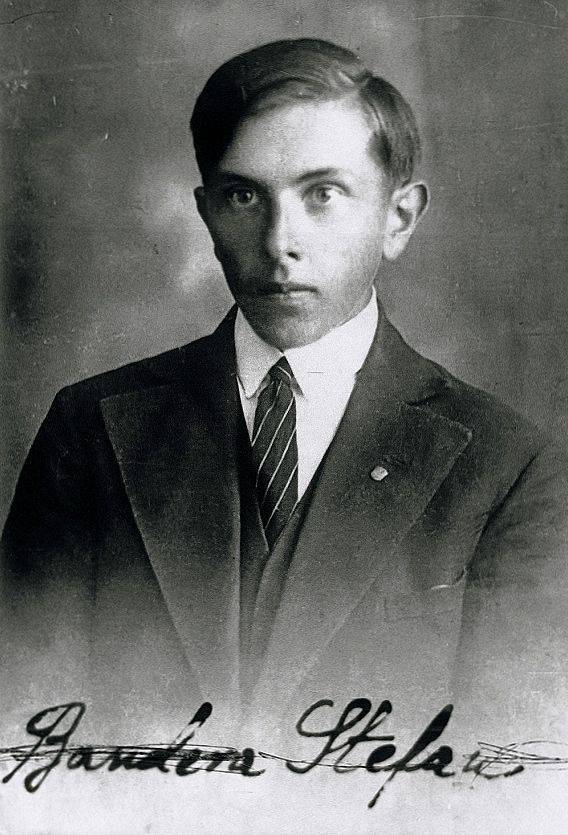
It was Stepan Bandera who had irrefutable evidence against Theodor Oberlander as the organizer of the bloody orgy of the first days of the occupation of Lviv. This is a real motive for eliminating Bandera as a dangerous witness, given that by that time many leaders of the OUN-UPA led by Vasily Kuk (head of OUN (b) and commander-in-chief of the UPA Roman Shukhevych had been killed by 5 in March 1950 of the year) during the special operation of the MGB of the USSR, conducted under the direction of Lieutenant-General of State Security Pavel Anatolyevich Sudoplatov, after October 24 1949 of the year Ounovtsy in Lviv hacked with an Hashul ax in the workplace of anti-fascist writer Yaroslav Gala on).
I know about these circumstances not from the Millers and the Mukhins, but from the Chairman of the KGB at CM of the Ukrainian SSR in 1954 – 1970, Colonel-General Vitaly Fedotovich Nikitchenko, who in 1970 – 1980's was the head of the KGB of the USSR, he also transformed into the FSB Academy behalf of F.E. Dzerzhinsky.
My father, who worked together with Vitaly Fedotovich and was his friend, recalls the situation in those years in Ukraine: “In 1954, Ukrainian KGB officers detained Vasily Cook during a special operation. After the death of Roman Shukhevych in the summer of 1950, in the course of another special operation, Vasiliy Kuk became General-Khorunzhim of the Ukrainian Insurgent Army (UPA). He occupied all the leading positions: the head of the OUN (b) on the “Ukrainian lands”, the Head of the General Secretariat of the Ukrainian Main Liberation Council (UGVR) and the Chief Commander of the UPA. The arrested Cook asked to meet with the KGB Chairman of Ukraine Vitaliy Fedotovich Nikitchenko. And although the Chairman of the KGB of the USSR I.A. Serov sharply objected to such a meeting, Vitaly Fedotovich decided to agree.
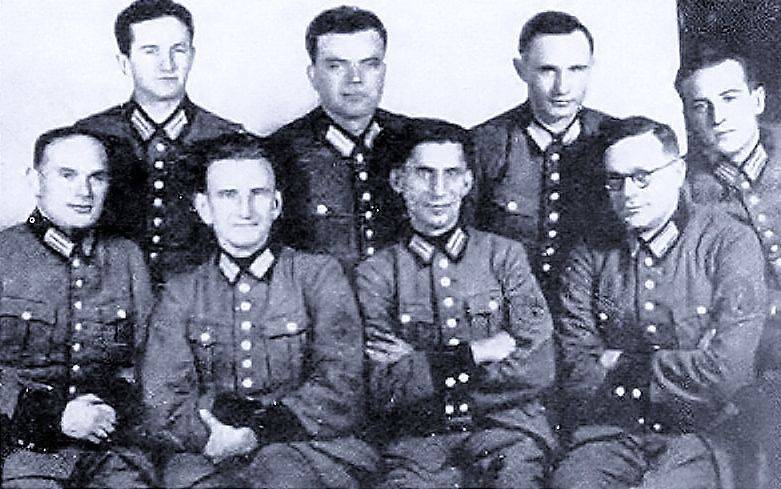
The fact is that Nikitchenko in the fight against the OUN-UPA proved himself not only a bold, but also a creative-minded leader who understood that Ukrainian nationalism is a very serious phenomenon and must be fought with it not only by force, but also through negotiations and compromises.
He believed that nationalism in Ukraine in the near future not to win. That, while fighting with its acute manifestations by the corresponding sharp methods, it is necessary to learn to live with it, to disarm the nationalists ideologically with the strength of mind and compromise. After Vasily Kuk suggested to Vitaly Fedotovich to talk as a “scout with a scout,” a useful conversation took place. The arrested person asked to let him go, promising to “work it out” for it, assuring that there would be no trouble in Kiev in the near future, and if necessary he would return. Vitaly Fedotovich decided to believe the bandit, and he left. ”
As Vitaly Fedotovich himself said, it happened a few days before the celebration of the October Revolution, the parade and demonstration on Khreshchatyk. On the podium rose officials, among them Nikita Khrushchev. Vitaly Fedotovich was also here. A few minutes before the start, his deputy with a whitened face approached him and said that a call had been received that a bomb had been laid under the podium. What to do? Report whether Khrushchev? Vitaly Fedotovich decided not to say anything. I moved closer to Khrushchev, deciding that if there was an explosion, we would take off together.
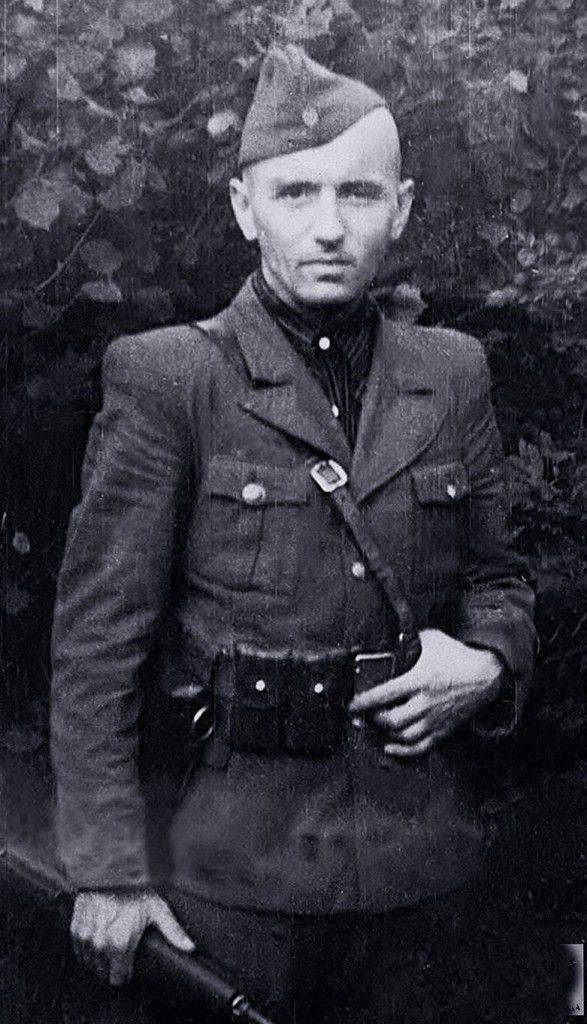
Fortunately, everything worked out. After some time, Vasily Cook came by himself and brought with him more than 50 people who had disarmed active comrades. That was how the victory over the Bandera movement was achieved, which practically ceased to exist. “Today it seems to me that Vitaly Fedotovich was far ahead of the time in which he lived in his KGB look,” writes my father. - He was always perceived as a man of the future, and this was not welcomed by everyone.
To resolve any contradictions in society, he always considered a compromise as a mandatory option, preferring it to a force option. Everything was built on mutual trust. The chairman of the KGB of Ukraine saw in Vasily Kuk not just a gangster, but a thinking man who was able to realistically assess reality and abandon his gang activity. ”
After several years of imprisonment, Vasiliy Kuk was released in 1960 and wrote “An open letter to Yaroslav Stetsko, Mikola Lebed, Stepan Lenkavsky, Darya Rebet, Ivan Grinyokh and all Ukrainians who live abroad”, in which he recognized the Soviet government as legal in Ukraine He rejected the OUN-UPA and called on the Ukrainian government in exile to recognize the USSR as a legitimate state and return to Ukraine.
Thus, by the 1959, the OUN-Bandera was largely defeated, and in large part thanks to the efforts of the Western Ukrainians themselves, who had never lived so freely and materially well as under Soviet rule. Yes, to other nations, perhaps, the Soviet government seemed despotic, but Western Ukrainians before it lived in much worse conditions, literally in slavery.
They began to lose interest in emigration conductors of the OUN, long overbought by foreign intelligence services. Therefore, Stepan Bandera has repeatedly stated his intention to return to Ukraine. The leaders of the Soviet state security rightly expected that Bandera would follow the example of Vasily Kuk and voluntarily go to cooperate with the Soviet authorities (it should be noted that after his release Vasily Kuk lived in Ukraine, was engaged in scientific work at the Central State Historical Archive and stories After the collapse of the USSR, the Academy of Sciences of the Ukrainian SSR published a series of works devoted to the history of the UPA, and 9 died on September 2007 in Kiev at the age of 94 years).
Although this development did not suit the West German intelligence agency BND and the federal minister in the government of Adenauer, the former head of the special battalion of the Abwehr “SOLOVEY” named after Stepan Bandera, the SS Oberführer Theodor Oberlander. October 15 1959 Kraytmeyerstrasse 7 neighbors' attention attracted Bandera’s cry and they looked out of their apartments. This happened approximately in 13 hours 5 minutes. According to the testimony of neighbors, lying on the floor of Bandera, whom they knew by the fictitious name of Stefan Popel, was covered in blood and probably still alive.
One way or another, on the way to the hospital, the leader of the OUN (b) died without regaining consciousness. The primary diagnosis is a crack at the base of the skull as a result of a fall. Considering the possible causes of the fall, the doctors stopped the heart failure. But, since during the examination the doctor found a holster with a revolver in the dead man, the criminal police intervened. However, there was no investigation that is not difficult to check for newspaper publications. The case was closed because, according to the doctors, Bandera died of a heart attack.
Two years after the death of Bandera and literally the day before the construction of the Berlin Wall, an 30-year-old man came to the West Berlin from East with his wife with his wife, who presented himself as a KGB officer Bogdan Stashinsky and told the bewildered Americans that he was the killer of Bandera.
The defector reported that the KGB pistol made in the “secret laboratory of Beria”, firing glass ampoules using a “powder charge”, served as a murder weapon. Despite the absurdity of such an idea, this time a criminal case was initiated, which was taken up by the federal criminal police and the Munich commission to investigate the killings.
As is known, the motive and evidence are fundamental for German legal proceedings. Motive, as we saw above, neither Bogdan Stashinsky nor the KGB was not. Oberlander had the motive. Now let's see how things are with the evidence.
To begin with, this version of the Bandera assassination is completely untenable, since it is known from the words of only one person - Stashinsky himself. Alas, in a legal language, the words of a person are just a statement, but by no means proof.
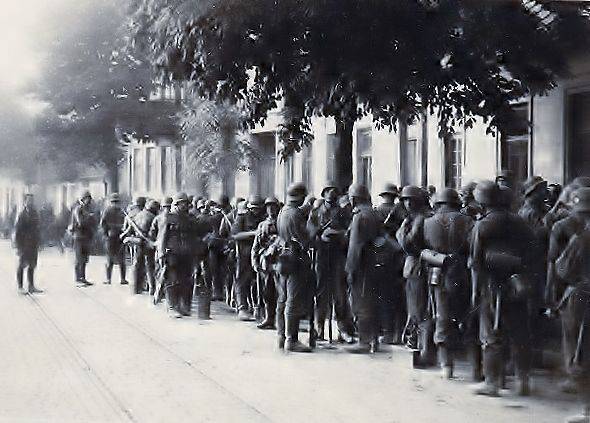
From the materials of the case it follows that the cause of Bandera’s death was precisely established - “cyanide poisoning”, since Bandera had “obvious traces of hydrocyanic acid” in Bandera’s stomach. But, first, how did the German “experts” manage to investigate Bandera’s stomach three years after his death? Secondly, even if you believe in this nonsense, it means that the ampoule-bullet from the infernal pistol hit Bandera in his mouth, and he swallowed hydrocyanic acid. If so, then Bandera usually walked with his mouth open. Although, if this is allowed, for example due to shortness of breath, then bewilderment arises, because you had to get into the open mouth ...
In addition, Stashinsky told German investigators that he was seen during the murder. When Bandera, loaded with purchases, allegedly tried to get the key to the lock, he, Stashinsky, allegedly went downstairs to him from the top and offered help. Bandera looked around, and at that moment Stashinsky shot him in the face with a pistol-tube (this “gun”, by the way, was never found - it was “reconstructed”).
Then, without looking at Bandera, he calmly went to the exit, where a woman should have seen him, who had previously exchanged a few words with the victim in the front door. And two years later, this woman, who turned out to be a cleaner, confirms that then an innocent young man really met her, although in the 1959 year, when she was asked if she didn’t see “suspicious persons” in the front door, she replied in the negative ... offered to identify the voice that he heard, that is, this is also not proof.
Other "evidence" of Stashinsky's guilt is the same linden. For example, some fragments of a non-patented key in the entrance lock are mentioned ... So what? Does this prove that Stashinsky opened the door with the master key? The nonsense is complete, but it is curious that there is no reference to the survey of the tenants of the entrance, has anyone made a new key to replace the lost key.
Most likely, Stashinsky was mentally ill and imagined himself a Bandera killer. Realizing this, the Germans and their American curators simply decided to use it in the “cold war” against the USSR, falsifying the whole process from beginning to end. And, although Bogdan Stashinsky had to undergo a psychiatric examination, nevertheless, under pressure from the American authorities 8 in October 1962, a loud legal process began in Karlsruhe against him. The world media that covered it blamed the Soviet leadership for the murder of political opponents.
An international scandal erupted. However, Stashinsky himself, according to eyewitnesses, at the trial, behaved quite calmly, as if he knew that the sentence would not be too harsh. As a result, Stashinsky was recognized as the killer of Lev Rebet and Stepan Bandera, while receiving a very lenient punishment - 8 years in prison. Not having served half the time, he disappeared in an unknown direction ...
Top secret
27 March 1969 Nr. 205 / n
Chairman of the KGB at the CM of the Ukrainian SSR
V. Nikitchenko
ANNOUNCEMENT
The Stern magazine No. 8 from 23 February 1969, published in Hamburg (Germany), placed an article entitled “The man who committed the murder by order of Moscow, was released from prison ahead of time” (translation of the article is attached).
Translation from German: “... Guarded as thoroughly as a state secret, Bogdan Stashinsky was released from a Bavarian prison. He was met by agents of the American Secret Service and immediately sent to America by military aircraft.
In 1957 and 1959 Stashinsky on the instructions of the Kremlin killed two people in Munich.
The federal court sentenced him only to eight years, guided by the fact that he committed a crime not for “base motives”, but on the instructions of the Soviets.
The executor of the two murders was to be detained until October 1969, however, on December 31 1966, the man whom federal president Lübke had previously refused to apply for clemency silently disappeared from the West German horizon. A federal judge replaced his remaining sentence with “conditional.” In the United States, he was taken on bail by individuals who regard Stashinsky as special agent No. 1 of the American CIA secret service ... ”
29 April 1960 of the year in the GDR was an open trial of Theodor Oberlander, the federal minister for displaced persons, refugees and war victims of West Germany, accused in absentia of the murder of several thousand Jews and Poles in Lemberg (Lviv) in 1941. The court sentenced the defendant in absentia to life imprisonment. After the sentence was pronounced, Theodor Oberlender sent a letter of resignation to the German Chancellor, but Adenauer, who was, among other things, a personal friend of Oberlander, rejected the petition. But on May 4, the SPD faction demanded the creation of a parliamentary commission to investigate Oberlander’s past, and he was forced to resign again, which was accepted this time.
October 13 1961 at the press conference in the press service of the government of the GDR was represented by BND agent Stefan Lipolz. He stated that in 1959, he received a task from West German intelligence to physically eliminate Stepan Bandera.
“At the same time, they handed me a white powder,” Lipolts showed, “with which I should have poisoned Bandera.” True, the agent acknowledged that he was not able to perform this task. But on Christmas, a Ukrainian named Dmitry Miskov, who had access to the dining room of the people of Bandera, admitted to Lipoc that "he killed Stepan Bandera on behalf of Gehlen (that is, BND. - A.V.)."
Then this Miskov eliminated. The motive for Gelena’s actions was that “despite all the efforts, Bandera rejected cooperation with the BND, because he was already an agent of British intelligence”. ”
The Chairman of the KGB under the Council of Ministers of the Ukrainian SSR, Vitaly Fedotovich Nikitchenko, personally led the measures to expose Theodor Oberlander. In the 1962 year, in contrast to the trial of Bogdan Stashinsky in Karlsruhe, the Soviet Union accused Theodor Oberlander of killing Stepan Bandera.
Chairman of the KGB at the CM of the Ukrainian SSR
Major General T. Nikitchenko V.F.
Kiev
Top secret
Ex. No. 1
In accordance with your instructions by the KGB Directorate of the UkrSSR SM in Lviv region, in the period from October 1959 to April 1960, measures were taken to document and collect evidence of the atrocities committed by the Oberlender and the Nachtigall battalion in the region. Witnesses who spoke on this case at a press conference in Moscow and at a trial in Berlin were identified and prepared accordingly.
After the annexation of the GDR, the Berlin 28 court in November 1993 of the year overturned the verdict of the GDR Supreme Court for formal reasons. Theodore Oberländer died 4 on May 1998 of the year in Bonn at the age of 93. It is interesting that after the release of a number of my publications about the bloody Nazi criminal Theodore Oberlander, the Russian mass media came out in defense of the latter. So, most recently, 24 August 2015, the newspaper "Top Secret" published a note by Vladimir Voronov called "Hunting Oberlendera." Actually, its name already speaks for itself - the hunt for an innocent victim of a “bloody gebni.” “May 6 1960 of the year,” writes Voronov, “the head of the KGB Directorate in the Lviv region, Colonel Volodymyr Shevchenko, reported on the successor to the Ukrainian KGB Major General Vitaly Nikitchenko about successful the completion of special events ... The case, one might say, ended with great success - not by hook or by crook, the KGB, it turns out, "left" the whole West German minister ... The actions of the KGB comrades were not dictated by the passion of the search and punish the real Nazi criminal: it was a typical special operation of a purely political purpose.
Special training of witnesses (that is, in fact, false witnesses), compromise, special events ... - only the special lexicon shows that all this did not even lie close to the law as such. ”
It should be noted that in this case, the newspaper “Top Secret” exposed not the “comrades” from the KGB, but her incompetence in the matters in which she, in theory, should have figured out: she did not know that in the language of the special services “the training of witnesses "Means their search (after all, 1941 years have passed since the crime of June-July 18 of the year!), Conducting investigative actions with them, identifications, etc. And the statement that “the actions of the KGB comrades were not dictated by the desire to find and punish the real Nazi criminal,” draws at least a counterclaim of slander: and who, one wonders, exposed hundreds of Nazi criminals all these years, often risking their lives?
Maybe the newspaper "Top Secret"?
“In October, 1962 of the year,” continues the expert “shaman dances with tambourines” Voronov, “it was necessary to divert attention from the loud and scandalous process of defector Bogdan Stashinsky, who testified how Lubyanka organized political assassinations abroad at the direction of the Kremlin. In particular, Stashinsky described in detail how he killed the leader of the Ukrainian nationalists Stepan Bandera in Munich on October 15 of the year 1959.
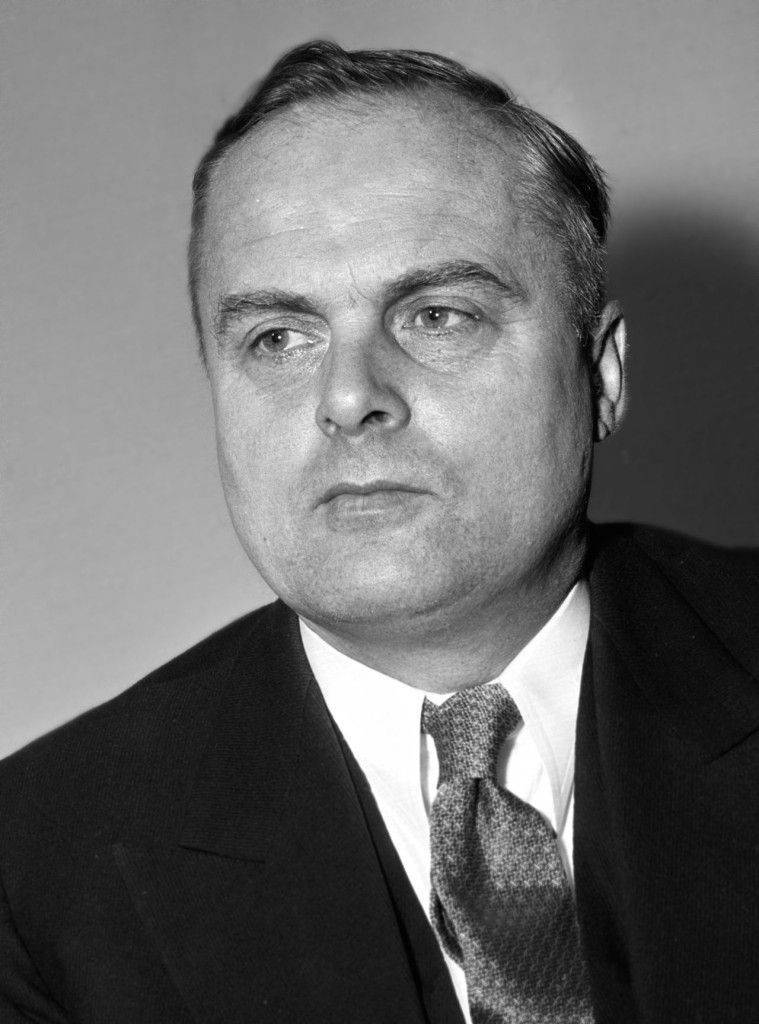
By the way, it was then, in October 1959 of the year, that a special operation was launched to compromise Oberlender - an interesting "coincidence" that allowed the KGB to shift the focus of attention. " Next comes the real horror film, a thriller completely borrowed from the German magazine Spiegel: “Early in the morning of 30, June of 1941, Nachtigall, together with German troops, entered Lviv, taking over a radio station and a number of other objects. During the seizure of three Lviv prisons, it was discovered that all of them were filled up with corpses - during the retreat, the NKVD and NKGB officers shot prisoners of 4140. As if in response to this, a bloody massacre of Jews began in Lviv ...
Moreover, there were quite a few Jews among those who were executed by the Chekists in prisons: within a few days, about 4000 Jews were killed in the city ”. This absurdity ends with a thoughtful half-hint: “Maybe the“ Nakhtigalevites ”didn’t actually shoot, so as not to waste state-owned cartridges? Most of the victims were then killed by rifle butts, axes, knives, clubs, iron rods ... ”Finally entangled in his lies, Voronin nevertheless didn’t hesitate to applause from the“ fifth column ”and the Western curators making the necessary conclusion:“ Together with Oberländer and his “nightingales ”Punitive-security officers should also sit on the same dock ...”
So the liberals, sometimes calling themselves “Russians,” openly side with the Ukrainian and West German Nazis, without troubling themselves with either evidence or witness testimony. And why, because the money does not smell, especially thirty pieces of silver
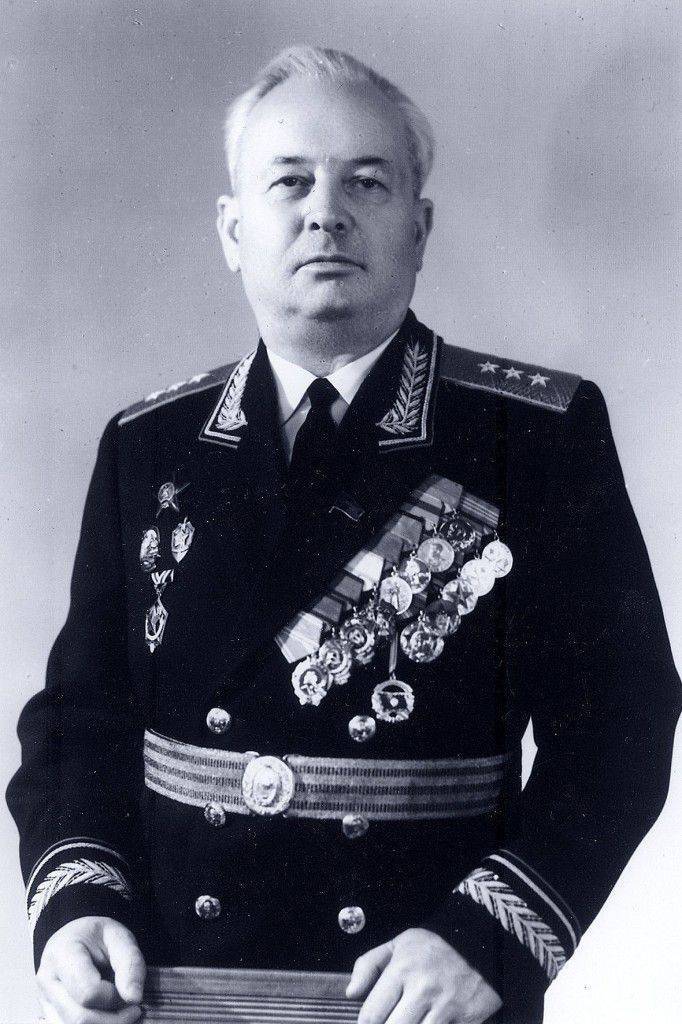
But so that they would understand at least a little bit about who they bark on, I will quote words from my father’s memories of the KGB chairman of the CM of the Ukrainian SSR, Colonel-General Vitaly Fedotovich Nikitchenko: “He was a man of exceptional decency, great intelligence and tact.
He was a one-of-a-kind person, we never had such wise big bosses in our system. V.F. Nikitchenko in many respects was a man and leader of the future ... And I also wanted to say something about Vitaliy Fedotovich’s spouse Elizaveta Stepanovna. She was hospitable and hospitable, creating a relaxed home environment.
It was extremely pleasant to watch their relationship - a relationship of love and respect for each other. One could only guess what she had to endure during the long years of living together in very difficult conditions! Soon a great sorrow fell upon Vitaliy Fedotovich’s family. Due to a gross medical error in the diagnosis, the younger son died. Two years after that, the eldest son died tragically in Kiev.
All this has broken the health of the parents. They moved to Kiev. The last time I met with Vitaliy Fedotovich in 1990, in Kiev in the hospital. Despite a serious illness, he was full of original thoughts and plans for the future, he was worried about the party and the country, he was bored by the lack of communication. We said goodbye to him with tears. We thanked each other and fate for making us friends. He said hello to all employees of the Higher School. In 1992, Vitaliy Fedotovich was gone. What a man was!
As for Stepan Bandera, his fate is instructive in many respects: let the henchmen of the fascists and Western hangers-on, including from the newspaper Top Secret, know what their German masters are doing with their former lackeys when they are no longer needed.
Information